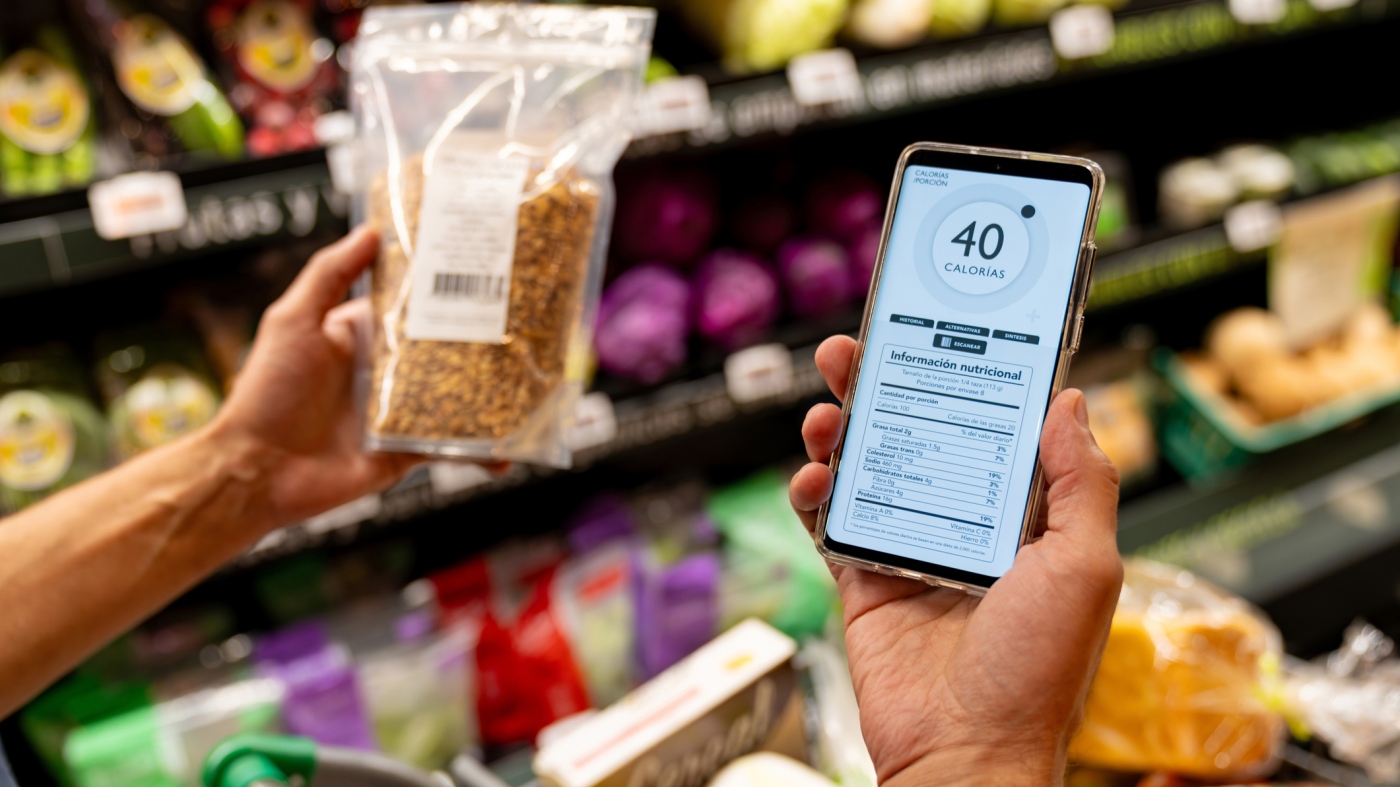Regular bowel movements don’t mean the same thing for everyone – some people poop three times a day and others poop three times a week. But one thing is the same for everyone: Bowel movements are important to your health and when you don’t (or can’t) poop, you may feel sluggish and slow. If you start to experience symptoms like belly pain or gas, or feel like you have to strain or work hard to poop, you may be constipated.
When you’re constipated, you don’t usually need to visit your doctor. Sometimes making some changes to your diet is all it takes to get things going again. But the solution isn’t the same for everyone. Keep reading for foods and drinks that can help your gastrointestinal (GI) issues, and those to avoid.
How foods with fiber can help if you’re constipated
There are many causes of constipation, as well as common symptoms of constipation. But the good news is that it’s usually easily remedied. And often, increasing your fiber intake is a helpful first step.
Fiber isn’t a miracle cure for constipation, but research has shown that it’s effective and helps keep things moving more than other foods you typically consume. Fiber supports your gut microbiome (the healthy bacteria in the gut) and gut motility, which are muscle contractions in the intestines that move things along in the digestive process – like when you poop.
The recommendations for daily intake of fiber are determined by the U.S. Food and Drug Administration (FDA) based on a 2,000-calorie daily diet. But the amount that you should aim to consume depends on your age, sex and your personal nutrition goals.
Speak to your doctor about what’s right for you, but most adults should typically consume between 22 and 34 grams of fiber per day. When comparing and choosing foods to eat, most people need 100% of the daily value of dietary fiber to stay regular. 5% or less of dietary fiber per serving is considered low and 20% or more per serving is considered high.
There are two types of fiber that can help you poop
While you may know that there are two types of fiber, insoluble and soluble, you may not know that both kinds can help with constipation.
Insoluble fiber is considered a natural laxative, and can be found in foods such as celery, carrots and whole grains. It helps food remain more intact and move more quickly through your digestive system, and can help make stool larger and softer, which can help with constipation.
Soluble fiber, found in foods such as apples or bananas, can also create bulk in your poop, but it’s slower to move through your digestive system. Instead of a laxative effect, it softens poop – making it easier on you when you finally have to go.
Colon-healthy foods are important for your overall digestive health, and adding them into your diet can be easy. Fiber is found naturally in many whole foods, like certain whole grains, fruits, vegetables, nuts and seeds. But it can also be found in packaged food, where the amount of fiber is indicated by the nutrition facts on the label.
Your best bet when aiming to increase your fiber is to eat whole foods. But since cooking food doesn’t reduce the fiber content, you could incorporate high-fiber foods into your recipes, too.
Keep in mind, however, that many fruits and vegetables are considered high fiber because of their skins and seeds, and removing them removes much of the fiber content. So keeping food as intact as possible is your best bet to hit your fiber goals.
Also important to note is that it’s best when increasing your fiber intake to do so gradually. Introducing more fiber too quickly can cause bloating and stomach discomfort.
High-fiber fruits that can help
Apples are considered a good source of fiber that can really help when it comes to constipation, but they aren’t the only way to up your fiber. Other fruits that are even higher in fiber include:
| Passion fruit | 1 cup | 24 |
| Avocado | One avocado | 9 |
| Raspberries and blackberries | 1 cup | 8 |
| Kiwi | 1 cup | 5 |
| Pear | 1 cup | 4 |
| Blueberries | 1 cup | 4 |
| Strawberries | 1 cup, sliced | 3 |
| Banana | 1 medium banana (7-8 inches) | 3 |
| Prunes | 4 prunes | 3 |
| Mango | 1 cup, sliced | 3 |
Try these high-fiber vegetables
There are a lot of common vegetables that are high in fiber, and you might already have them on your counter or in your garden or freezer:
| Artichoke | 1 cup | 9 |
| Pumpkin | 1 cup | 7 |
| Brussels sprouts (cooked) | 1 cup | 6 |
| Sweet potato (cooked) | 1 cup | 6 |
| Broccoli (cooked) | 1 cup | 5 |
| Carrots | 1 cup | 5 |
| Kale (cooked) | 1 cup | 5 |
| Potato (baked, with skin) | 1 medium potato | 4 |
Whole grains are the best grain to help relieve constipation
While refined grains like white flour, breads and pastas contain little to no fiber, whole grains are a great source of dietary fiber:
| Whole wheat spaghetti (cooked) | 1 cup | 6 |
| Bran flakes | 1 cup | 5.5 |
| Quinoa (cooked) | 1 cup | 5 |
| Oat bran | 1 muffin | 5 |
| Instant oatmeal (cooked) | 1 cup | 4 |
| Air-popped popcorn | 3 cups | 3.5 |
| Brown rice (cooked) | 1 cup | 3.5 |
| Rye or whole wheat bread) | 1 slice | 2 |
Choose beans and other legumes to increase the fiber in your diet
The different types of beans have a good mix of soluble and insoluble fiber, and they’re all fiber packed, so they’re especially helpful in aiding your digestion:
| Lentils (boiled) | 1 cup | 18 |
| Split peas (boiled) | 1 cup | 16 |
| Black beans (canned, boiled) | 1 cup | 15 |
| Pinto beans (boiled) | 1 cup | 15 |
| Kidney beans (cooked) | 1 cup | 12 |
| Chickpeas (cooked) | 1 cup | 12 |
| Green peas (cooked) | 1 cup | 8 |
| Edamame (boiled and shelled) | 1 cup | 8 |
Eat nuts and seeds to help with constipation symptoms
As we said before, seeds are a great source of fiber. But nuts can also pack a punch:
| Chia seeds | 2 tablespoons | 18 |
| Pistachios | 1 cup | 13 |
| Hazelnuts | 1 cup | 13 |
| Pumpkin seeds | 1 cup | 12 |
| Almonds (sliced) | 1 cup | 11 |
| Ground flaxseed | 2 tablespoons | 7 |
| Pomegranate seeds | 1 cup | 7 |
| Chestnuts | 1 cup | 7 |
Common foods and drinks that can cause constipation
Just like there are foods that can help you poop, there are foods and drinks that can cause you to become backed up. You don’t necessarily have to avoid them altogether but consuming them in moderation is best for a well-rounded diet. These may include:
- High-fat foods – Rich foods, like those that have a lot of oil, butter and grease, are harder for your body to digest and break down. Also, they’re usually lower in fiber, which can lead to constipation.
- Refined grains – Whole grains help when you’re constipated, but refined grains, like those found in white bread and baked goods, are low in fiber and can contribute to constipation, especially if they’re part of a low fiber diet in general.
- Highly processed and fried foods – These are usually low in fiber and high in fat, which your body has more difficulty digesting. They’re also usually salty, which can lower the water content of your stool, leading to constipation.
- Dairy – When talking about constipation, this usually means cheese and milk, as they can contain high FODMAPs (carbohydrates that aren’t easy for your body to digest). Other forms of dairy can also cause constipation, but usually only in those with lactose intolerance, or those that have a true dairy or milk protein allergy. But typically, people with those conditions will experience diarrhea, not constipation.
- Alcohol – The main reason people experience constipation after consuming alcohol is because alcohol dehydrates you, which means your digestive system can’t work the way it’s supposed to. It can also make you need to pee more, and when your body gets rid of more fluid than it normally would, it can make you constipated.
- Red meat – While it’s good for you in many ways, it can also affect your bathroom habits. It usually contains no fiber, and is high in fat and iron, all of which can lead to constipation.
Can bananas cause you to experience constipation?
Ripe bananas on their own don’t cause constipation, as they pack a mini punch of fiber, with 3 grams in a medium-sized banana. But unripe bananas contain high amounts of tannins and starch, which can cause or aggravate existing constipation. If you haven’t been able to poop, it’s best to avoid bananas altogether, and grab another source of fiber just to be on the safe side.
Drinks that can help make you poop
Dehydration is one of the most common causes of constipation, because if you don’t have enough water in your body, your large intestine soaks up the water from food and drinks you consume, making your poop hard and difficult to pass. This is why when it comes to constipation, water is your best bet. Other beverages that can help include:
- Prune juice – Prunes and prune juice contain a naturally occurring sugar called sorbitol, which can have a mild laxative effect.
- Hot beverages – Heating a drink, especially caffeinated ones like tea or coffee, can help with gut motility and the caffeine can stimulate your bowels.
- Unsweetened or naturally sweetened fruit and vegetable juices – Apple or pear juices work well, especially if they’re warm.
- Clear soups and broths – These can add moisture to your poop and make it easier to go, and the heat can help stimulate your gut.
- Green smoothies – Try smoothies made from leafy greens like spinach and kale, as well as other fruits and veggies that are high in fiber.
Tips to help keep your bowels moving properly
While adding too much fiber to your diet too quickly can cause gas, bloating and cramping, adding it slowly and gradually can allow your digestive system to adjust and help with constipation. The same tips and tricks to incorporate more fiber into your kids’ diet to help with constipation apply to your diet, too.
Jump-start your day with a high-fiber breakfast
This doesn’t just mean a bowl of oatmeal. Make a smoothie chock full of high-fiber fruits and veggies, add fiber-rich fruits and nuts to your yogurt, or top a bowl of fiber cereal with sliced bananas or berries. Sprinkling seeds and nuts on your food is also a good way to level up your fiber intake.
Make sure at least half of the grains you consume are whole grains
This goes for all of your daily meals, but is especially important at breakfast. Whole grains give you a good kickstart to the day. They’re high fiber, which can soften your stool, and they can keep you feeling fuller for longer, which can help you control your calorie intake.
Stick with baked goods made with whole grain flour
It’s not always the case, but many baked goods can be made with whole grain flour. Instead of making a sandwich with white bread, choose one made with 100% whole wheat. Or instead of preparing a meal that has brown rice, try one with quinoa. It has twice as much fiber, and as a bonus, more protein than brown rice.
Incorporate legumes into most meals
Since legumes are so high in fiber, it’s important to eat them regularly. Try topping your salads with chickpeas, add lentils to your soup, spread hummus onto your sandwiches, or replace the meat in pasta dishes with mashed kidney beans for maximum fiber intake.
Eat five or more servings of fruits and vegetables every day
Remember the food pyramid? While the recommendations for dairy, grains and meat have changed over the years, the recommendations for fruits and vegetables remains the same: Make half of your plate fruits and vegetables, while focusing on whole fruits and varying the veggies you eat.
Snack smarter with high-fiber food choices
Sometimes, you may find yourself so hungry that you reach for the nearest salty snack. Instead of grabbing a bag of chips, try roasted edamame, kale chips or popcorn. Instead of ice cream, make yourself a fruit smoothie. If you need a snack on the go, no-cook energy bites with nut butters, dates or raisins and oatmeal are a great high-fiber choice. And if you’re craving a dip, homemade guacamole is a good choice, as avocado is high in soluble fiber.
When you should speak to your doctor about constipation
While constipation can be a pain, it doesn’t usually require you to speak to your doctor. But if at-home methods aren’t helping, and constipation is putting a cramp in your style, reach out to your primary care doctor or clinician. They can help give you tips to get things moving, or refer you to a gastroenterologist if more advanced care might be needed.













![Healthy Peanut Butter Banana Protein Pancakes [dairy-free + gluten-free]](https://i0.wp.com/healthyhelperkaila.com/wp-content/uploads/2024/11/PBBananaPancakesFEATURED.png?fit=1531%2C1536&ssl=1)





 English (US) ·
English (US) ·